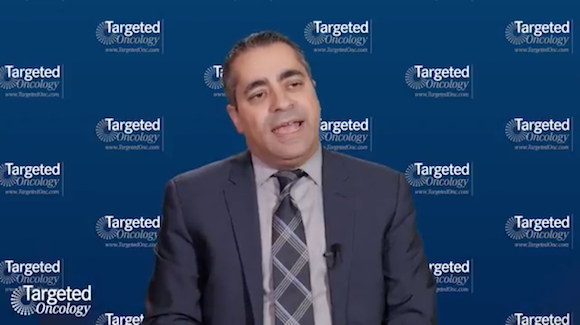Protease Inhibitor Amplifies HCV Therapy
Reuters Health • The Doctor's Channel Daily Newscast
“Standard-of-care treatment of genotype 1 hepatitis C virus is pegylated interferon and ribavirin for 48 weeks, which results in sustained virological response (SVR) in about 40–50% of individuals,” note Dr. Paul Y Kwo of Indiana University School of Medicine, Indianapolis, and colleagues at 67 sites in North America and Europe.
Boceprevir is an oral NS3 protease inhibitor that has been shown to have potent anti-HCV activity. The team tested the efficacy of boceprevir when added to peginterferon alfa-2b and ribavirin in a phase II trial involving 520 treatment-naive patients with genotype 1 HCV infection. The effect of a lead-in period versus concomitant initiation was tested, as well as varying durations of treatment.
The primary endpoint was sustained virological response (SVR) after treatment. Patients randomized to the various boceprevir groups had higher SVR rates than those in the control group that received standard peginterferon/ribavirin only, the researchers report.
Specifically, SVR rates were: — 38% for controls given peginterferon alfa-2b 1.5 mcg/kg plus ribavirin 800–1400 mg daily for 48 weeks; — 54% for those given peginterferon alfa-2b, ribavirin, and boceprevir 800 mg three times a day for 28 weeks; — 56% among patients assigned to peginterferon alfa-2b and ribavirin daily for 4 weeks, followed by peginterferon alfa-2b, ribavirin, and boceprevir three times a day for 24 weeks; — 67% with peginterferon alfa-2b, ribavirin, and boceprevir three times a day for 48 weeks; — 75% for patients assigned to peginterferon alfa-2b and ribavirin daily for 4 weeks, followed by peginterferon alfa-2b, ribavirin, and boceprevir three times a day for 44 weeks.
“Boceprevir-based groups had higher rates of anaemia (55% vs 34%) and dysgeusia (27% vs 9%) than did the control group,” Dr. Kwo and colleagues report.
Treatment discontinuation because of adverse events was 8% in the control group and ranged from 9% to 14% in the boceprevir groups.
In a second part of the trial, the investigators tested a lower dose of ribavirin in the three-drug combination, but found this led to a higher rate of viral breakthrough.
The researchers say their results are consistent with those seen with another NS3 protease inhibitor, telaprevir, in combination with peginterferon and ribavirin.
In an accompanying commentary, Drs. Laura Milazzo and Spinello Antinori of the University of Milan, Italy point out that preliminary data suggest lower toxic effects with boceprevir than with telaprevir. They also draw attention to the need for complete viral suppression in order to avoid the emergence of drug-resistant virus.
Meanwhile, Dr. Kwo’s team notes that a large confirmatory trial is under way, “and will define the best treatment regimen for the use of boceprevir in the treatment of genotype 1 chronic hepatitis C virus infection.”
Funding for the study came from Merck.
Reference:
Efficacy of boceprevir, an NS3 protease inhibitor, in combination with peginterferon alfa-2b and ribavirin in treatment-naive patients with genotype 1 hepatitis C infection (SPRINT-1): an open-label, randomised, multicentre phase 2 trial
Lancet 2010.






